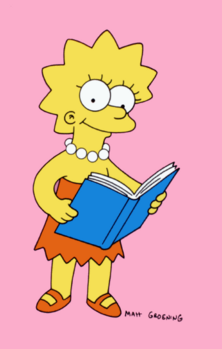The Devil and Carrie Bradshaw
Saw The Devil Wears Prada last night, in a packed theatre. I'm not sure the last time I've seen so many women together in one place.
First things first. Meryl is as brilliant as you've heard. Arch, cruel, perfectly expressive. With Cruela Deville hair and a chilly poise, her Miranda Priestly owns every second she's on-screen. And when she's not, her absence is palpable; like a lull in a storm, you feel unsettled and expectant until she returns. Most actresses would have created a cartoon, yet Meryl somehow creates a whole person - complex and vastly entertaining. That's a lot more than can be said of the rest of the cast. Anne Hathaway, as abused assistant Andy, mostly holds her own, but her character really exists in reaction to Miranda. The rest of the cast, unfortunately, has little to do and less to do it with, as they seem to have been provided with characteristics rather than characters, soundbites rather than subplots.
Still, the movie is fun and frothy, in that quasi-literate Bridget Jones kind of way. Yet it seems to owe its sensibility less to the book its based on than to Sex and the City. The exuberant Patricia Field fashions, the idealized vision of the city of New York and the denouement in Paris all call Carrie and friends immediately to mind. There's even a warm, sensitive Aidan of a boyfriend, played by Entourage's Adrian Grenier. He's a chef (suitably sexed up from a school teacher in the book, but still meant to suggest a certain soulful quality) with soft puppy-dog eyes and an understanding nature. A few carefully placed scenes are meant to suggest that he and Andy have a scorching sex life as well, presumably to help convince the viewer that he and Andy truly belong together. But who could pass up Mr. Big, or rather the literary version of him, in the person of Christian Thompson? Played with a subtle sense of entitlement and a lovely unsubtle sex appeal by Simon Baker, Thompson saves Andy's job and seems to offer her a devilishly easy way in to the world she seeks. That the movie seems to demand that Andy choose the soulful chef over the man who shares her ambition and her passion for writing is its chief flaw.
The movie is so busy judging Priestly (and Andy for being seduced by her larger-than-life job and catering to Miranda's crazy demands) that it dismisses what she accomplishes. Though characters pay lipservice to Miranda's success, it is clear that we are to see all she has given up to get it, and feel, if not pity than smugness at her failures. The message of the film is that sacrificing personal life for career simply isn't worth it if it means missing one birthday celebration for your soulful chef boyfriend. Please. There's a balance to be had between ambition and real life, though the movie suggests that ditching the ambition is the only way to succeed. Nice work of you can get it.
First things first. Meryl is as brilliant as you've heard. Arch, cruel, perfectly expressive. With Cruela Deville hair and a chilly poise, her Miranda Priestly owns every second she's on-screen. And when she's not, her absence is palpable; like a lull in a storm, you feel unsettled and expectant until she returns. Most actresses would have created a cartoon, yet Meryl somehow creates a whole person - complex and vastly entertaining. That's a lot more than can be said of the rest of the cast. Anne Hathaway, as abused assistant Andy, mostly holds her own, but her character really exists in reaction to Miranda. The rest of the cast, unfortunately, has little to do and less to do it with, as they seem to have been provided with characteristics rather than characters, soundbites rather than subplots.
Still, the movie is fun and frothy, in that quasi-literate Bridget Jones kind of way. Yet it seems to owe its sensibility less to the book its based on than to Sex and the City. The exuberant Patricia Field fashions, the idealized vision of the city of New York and the denouement in Paris all call Carrie and friends immediately to mind. There's even a warm, sensitive Aidan of a boyfriend, played by Entourage's Adrian Grenier. He's a chef (suitably sexed up from a school teacher in the book, but still meant to suggest a certain soulful quality) with soft puppy-dog eyes and an understanding nature. A few carefully placed scenes are meant to suggest that he and Andy have a scorching sex life as well, presumably to help convince the viewer that he and Andy truly belong together. But who could pass up Mr. Big, or rather the literary version of him, in the person of Christian Thompson? Played with a subtle sense of entitlement and a lovely unsubtle sex appeal by Simon Baker, Thompson saves Andy's job and seems to offer her a devilishly easy way in to the world she seeks. That the movie seems to demand that Andy choose the soulful chef over the man who shares her ambition and her passion for writing is its chief flaw.
The movie is so busy judging Priestly (and Andy for being seduced by her larger-than-life job and catering to Miranda's crazy demands) that it dismisses what she accomplishes. Though characters pay lipservice to Miranda's success, it is clear that we are to see all she has given up to get it, and feel, if not pity than smugness at her failures. The message of the film is that sacrificing personal life for career simply isn't worth it if it means missing one birthday celebration for your soulful chef boyfriend. Please. There's a balance to be had between ambition and real life, though the movie suggests that ditching the ambition is the only way to succeed. Nice work of you can get it.


0 Comments:
Post a Comment
<< Home